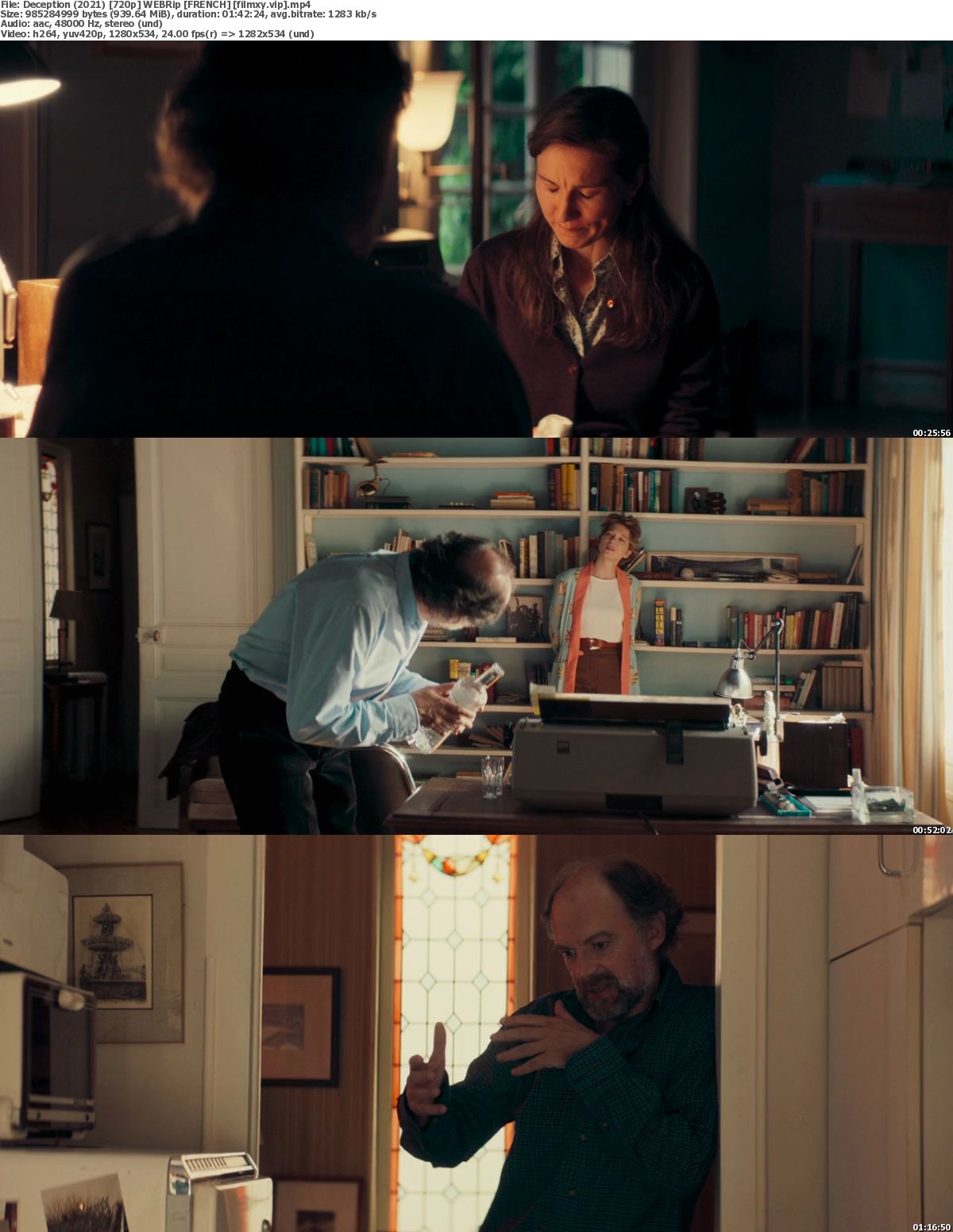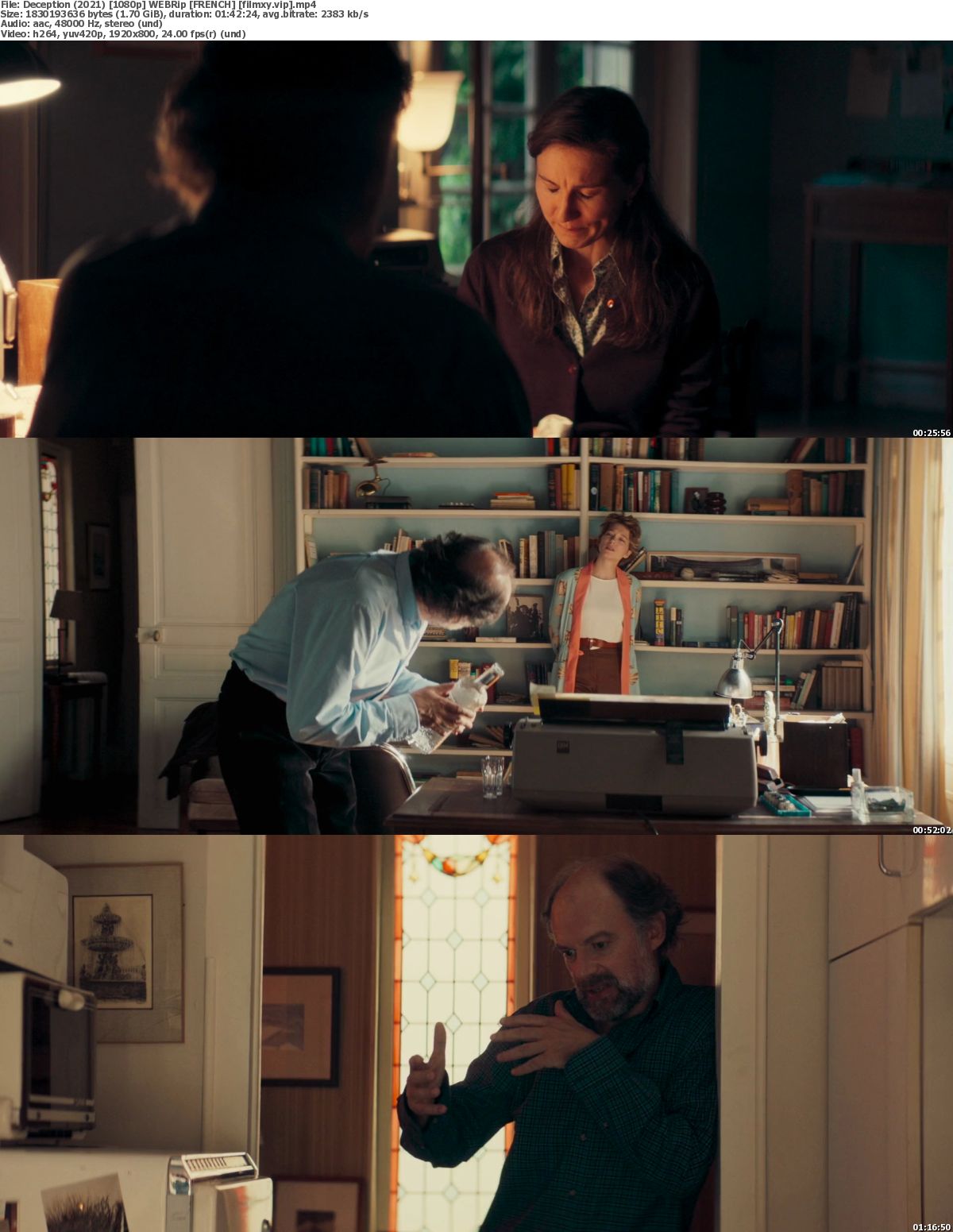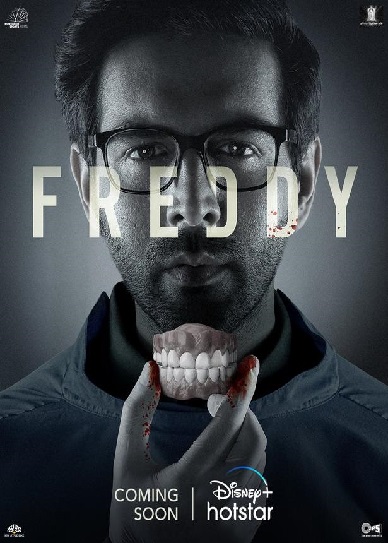
Deception (2021)
Free Download and Watch Online 720p/1080p Web-DL Full Movie HD
An American novelist living for a time in London converses with his wife, his mistress, and other female characters he may have dreamed up.”Deception”London – 1987. Philip (Denis Podalydès) is a famous American writer living in exile in London. His mistress comes regularly to see him in his office, a refuge for the two lovers. They make love here, they argue, they reconcile and talk for hours, about the women who mark out his life, about sex, antisemitism, literature, and remaining true to oneself.Philip Roth’s novel.was published in 1990. Roth’s character Philip, is he feminist or is he not? Misogynist? Surely a little, when the film says an opposing. Philip is not kind, and Philip is terse. The eroticism in the film lies in the use and after listening of words. Philip transcribes the fruit of this listening. He speaks only according to what he has heard, and according to what he seeks to awaken in the words of the other. The office, this chamber of language, houses this eroticism of words. Which isn’t to say that Philip privilges the spirit over the flesh. Not at all. Words and the body are the same thing to him. His lover no doubt comes looking for his non-judgemental listening, which offers her the tangible feeling of freedom. Philip doesn’t manipulate her. They both bring as much to one another. The office lies the heart of the film. There’s a difficulty; how to stage the fragments of dialogue without boring the spectator? How to ensure that this text, which seems circular, becomes a novel, ignites, and that each word finds it’s weight? The writer’s office encourages listening and free speech, like that of a psychoanalyst. The writer’s office is the utopia of psychoanalysis; to be able to capture oneself wherever one lives. Philip chose this exile. He praises it, while the other characters, who are either in exile from their homeland or in exile from themselves, experience it painfully. The film loves this idea that it’s fun to dissemble. Because to be able to talk to each other, we must dissemble. What’s enchanting and erotic is that the speech is built on a joyfully irreducible difference. And what’s interesting is the movement the film makes between the two worlds, the one where we live and the one we aspire to.Women are queens in “Deception”. Without them, no desire or creation. Where others would have asked for the woman to demonstrate her excellence, Philip welcomes his lover’s every word as a treasure. We sense a great loneliness in her. Without income you don’t have dignity, she says. This sentence summarizes her situation, her state. Her lover is her escape, a lump on her cervix. The film is also an elegy to Cinema. For example, the shot following an elegiac moment where we see The Lover (Lea Seydoux) putting her clothes back on and the whole room becomes dark around her, and she tells Philip ‘I feel an urgent need for solitude’. She has just spent a wonderful afternoon with her lover. When the face fills the whole screen, skin becomes celluloid capturing feelings, words, light, just like that of Rosalie (Emmanuelle Devos), each playing a lover of Philip’s years apart, is a screen on which the plot is projected. It’s miraculous and can’t be explained. The Lover has the gift of being able to allow tears rise slowly in her eyes just like a toddler, and it’s a blessing. As the young Czech Woman (Madalina Constantin) exile says, none of the characters in “Deception” are in their place. Neither the Czech exiles, nor The Lover trapped in a grim marriage, nor Rosalie in her hospital. The only one who has found his place is the writer, in his office, when he writes or listens. But this place has it’s price; loneliness and a certain austerity. “Deception” tells the story of people who feel out of place; this man listens to them and transcribes their words. The only character deprived of this childlike play is that of the wife (Anouk Grinberg). During her argument with Philip her grief also comes from the fact that she wasn’t allowed to have her share of childhood. Philip doesn’t listen to her childhood, and she protests like a wounded little girl.Like all utopias, in a sense, it fails, because the American writer and his lover finally break up. But they find each other again later and recognize that they were glorious. Thus utopia eventually triumphs: this man and this woman have managed to talk to each other and listen to each other in an infinitely free way. They’ve known each other. “Deception” is the portrait of two heroes. A woman who’s on the edge of the precipice at the beginning of the film, a woman in tears. In this case, it’s the final sentence, when The Lover says to Philip; ‘Because it was so tender, unless I was mistaken’. He tells her no, she wasn’t mistaken. The whole film is in these two sentences, there’s no misunderstanding, tenderness did exist between the two of them. This sentence is related to the beginning of the film, where she asks him if he feels the same way she does. There are often misunderstandings in love. Here, both of them agree at the end; they did understand each other. The film locks people into a social straitjacket. “Deception” is a concentrate of this position. In this idyll that’s the writer’s office, all the characters can claim their freedom; they refuse to be locked in a box. They choose freedom.The film is set in the 1980s, in England, and shot in French. It starts in a theatre, then moves to natural settings in different countries. As if by it’s very mechanism we are invited to cross borders. The text is a eulogy to exile. Behind it’s images, “Deception” seems to register a profession of faith in the powers of fiction in general and those of cinema in particular. We believe in the weaving that’s possible between art and life. We believe that art is worthless if doesn’t contain raw life, and that life is worthless if there’s no art in it to show us the relief. We also believe in the play of the writer who disappears behind his masks. For one, we’ve no self, and we’re unwilling or unable to perpetrate upon ourself the joke of a self. Instead we’ve a variety of impersonations. Certainly we’ve no self independent of our imposturing, artistic efforts to have one. We all live in very different and separate worlds. But sometimes we can run away and move from one world to another! Today’s world is still divided into a two, into thousand, men and women, rich and poor, dictatorships and the liberal world. Of course, we’re mortal, and that’s terrifying. But our mortality offers us an infinite gift; desire. “Deception” is a film haunted by death and yet this is a utopia shot through with desire.Written by Gregory Mann.
Posted on: May 29th, 2022
Posted by: Bad Boy








